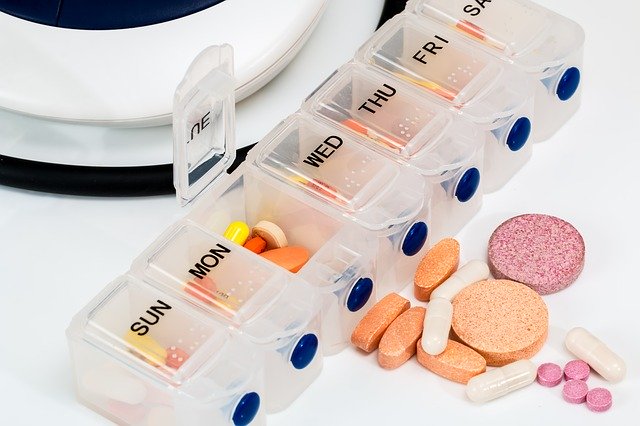In the IVF cycle, several medications are used which belong to different categories to stimulate the cycle. But the dose and types of medication prescribed for any intended mother depends upon the selected treatment protocol by the IVF expert she had contacted.
Gonadotropin-releasing hormone (GnRH Agonist)
Hypothalamus a small region of the brain from where GnRH hormone releases to regulate ovarian stimulation by Follicle Stimulating Hormone (FSH) and luteinizing hormone (LH) hormonal production. GnRH agonist is the synthetic form of GnRH hormone, which is often prescribed in ART treatment due to following reasons:
- GnRH agonist regulates ovarian stimulation, as hormonal production of the patient is suppressed.
- GnRH agonist administration helps to produce an increasing amount of mature oocytes than patients who seek IVF.
- Administration of GnRH agonist reduces the risk of the menstruation cycle, as embryo transfer in IVF cycle is canceled due to spontaneous ovulation. The spontaneous ovulation is a result of premature LH surge. But the risk of such incidence is reduced due to using of GnRH agonist.
- GnRH agonist can help in postpone ovarian function and thus brings flexibility in cycle scheduling for a variable period.
Mechanism of action
GnRH agonist indirectly stimulates ovarian function by regulating gonadotropin hormones (FSH & LH) from the pituitary gland. However, this medication does not induce ovulation or follicle development. Administration of GnRH agonist for a week or ten days therapy restrain LH and FSH production and ultimately helps in follicle development. This synchronizes mature oocytes’ development.
GnRH Antagonists
The GnRH antagonist acts instantly and directly inhibits FSH and LH production. The required dose of this medication is relatively lower. The timing of the initial dose to administer this drug depends upon follicular growth and for this ultrasound, measurement is required before starting the therapy.
Mechanism of action
The natural luteinizing hormone surge and ovulation prevented by blocking the gonadotropin-releasing hormone receptor present in the hypothalamus and thus LH and FSH hormone release suppressed from the pituitary gland. This helps to prevent premature egg production.
Gonadotropins
One of the primary aims of ART treatment is to produce multiple oocytes. The administration of Gonadotropins can accomplish this by directly stimulating the ovaries. Different variety of Gonadotropins drug regimens are recommended for ovarian stimulation. Some of the medications are formulated by a combination of LH and FSH. For example, Repronex® and Menopur®, which replace the natural LH and FSH secreted from the pituitary gland. But certain drugs contain FSH only for example Follistim Pen®, Gonal-F®, Gonal-F® RFF Pen, etc. This hormonal therapy increases oocyte production than that happens in ovaries at a woman’s natural cycle.
Ovarian stimulation through the administration of Gonadotropins supports the growth of the follicles, which is matured through the transvaginal ultrasound procedure. Subsequent estrogen level enhancement also measured through a blood test. Dosage monitoring is essential in such hormonal therapy.
Human Chorionic Gonadotropin
This medication also improves oocyte maturation and some of the popular brands include Ovidrel®, Profasi®, Pregnyl®.
Read Also: Georgia a Surrogacy alternative to India
Mechanism of Action
Human chorionic gonadotropin has a structural similarity with the natural LH produced in a woman’s pituitary gland. Its action on the ovary is similar to a woman’s LH means the Human chorionic gonadotropin, stimulates the maturation of the oocyte in the follicle. It also stimulates ovarian production of progesterone hormone after egg retrieval. The produced progesterone takes part in uterine development to support the embryo implantation process. The dose of Human chorionic gonadotropin needs to adjust to avoid ovarian hyperstimulation syndrome.
Read Also: IVF Success Rate
Reference: SART: ART Medication
Note: This article Informational purpose Only, You are advised to follow your Gynecologist.

Ravi Sharma is a self-motivated, successful entrepreneur and has a solid experience in the fertility segment. and he is the director at ARTbaby Global (ARThealthcare). He is a pharmacy graduate with post-graduation in business administration and has 14 years of rich experience in the field of infertility segment. He loves to write about IVF, Surrogacy, and other ART (assisted reproductive technology) news, issues, and updates. He is a Pharmacy graduate (B. Pharm) and M.B.A (marketing).
His most recent success includes the successful launch of the medical tourism company, ARTbaby, which offers treatment options for infertility, egg donation, and surrogacy. He likes spending time with his family and writing about various aspects of IVF surrogacy and donating eggs.

